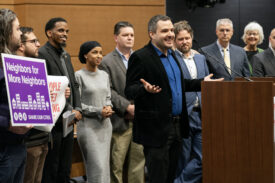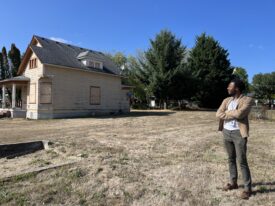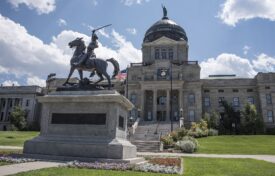Growth in well-planned neighborhoods, also called smart growth, improves our health and economy, saves our time and farmland, strengthens our communities, and conserves our natural areas. Poorly planned growth wastes all those things.
Building complete, compact communities—the opposite of poorly planned sprawl—yields an impressive array of benefits. It multiplies transportation options, allowing northwesterners to rely less on private vehicles and imported fuel.
It reduces the need for expensive road and parking infrastructure. It boosts the economic viability of transit and local shops, keeps more dollars circulating locally by conserving fuel, and lowers the cost of living by rendering some private cars unnecessary.
It strengthens democracy by fostering closer relationships among neighbors and mixing classes and races. It safeguards rural land and watersheds from the “final crop”—pavement—and allows cities to have crisp edges beyond which farms and forests flourish.
Perhaps most important, it saves people time in traffic and lengthens their lives—by staving off crashes (the leading cause of death up to the age of 44 in the Northwest); encouraging regular walking (reducing obesity); and clearing the air of toxic pollutants.
Northwesterners want safe, friendly neighborhoods as homes; convenient access to work, shops, and services; productive farms, forests, and fisheries nearby; and the restorative beauty of wild creatures and unspoiled places within view.
To realize this vision, thousands of northwesterners are making their region a laboratory for the reinvention of community. Revitalization, they are finding, comes in small steps, and those steps have immediate benefits. Block by block, zoning hearing by zoning hearing, they are making Cascadia a global model for urban livability.
Related Solutions
- Change zoning to allow “granny flats,” keep tight growth boundaries, and concentrate growth around bustling town centers.
- Invest in community livability, rather than mobility, which pinches sprawl’s lifeline—public highway spending.
- End subsidies to poorly planned development
- Reform the property tax to align market forces with building complete, compact communities.






